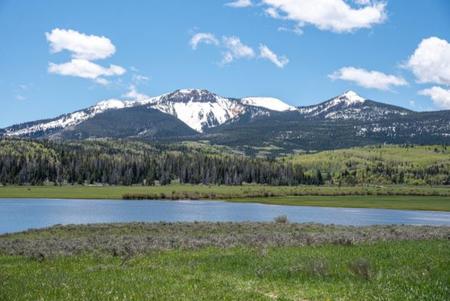Addressing Climate Change
Climate change is a critical issue for the Department of Natural Resources (DNR). DNR manages and conserves Colorado’s natural resources for the benefit of people today and tomorrow, which includes addressing climate change and helping communities and ecosystems adapt.
Additional Information
Draft Plan open for Public Comment through December 16, 2022.
The State of Colorado, including the Department of Natural Resources, Department of Agriculture, Colorado State Forest Service, and Colorado Natural Heritage Program, developed the state’s first ever draft Strategic Plan for Climate-Smart Natural and Working Lands
The Strategic Plan identifies priority actions, including existing programs, to reduce emissions, increase carbon sequestration, and create a climate resilient Colorado. Colorado’s natural and working lands include croplands, rangelands, forests, grasslands and shrublands, wetlands and riparian areas, and urban green spaces. This work compliments climate action by other departments to reduce greenhouse gas emissions from energy, transportation, industry, and other sectors.
We’re seeking input from the general public, producers, and land managers to make sure these strategies are attainable and align with the goals of Coloradans and Colorado’s climate change plans and policies.
Visit the Colorado Department of Agriculture's webpage to read and comment on the Draft Plan.
In 2020, DNR staff worked with other state agencies to develop Colorado’s first Greenhouse Gas Pollution Reduction Roadmap. The Roadmap calls for a Strategic Plan for natural and working lands, and identifies ongoing and planned climate change mitigation actions across several DNR divisions.
The Colorado Water Conservation Board (CWCB) works with climate scientists to summarize climate change data, projections, and understand potential impacts on Colorado's natural resources. Click here for General Information on climate change
